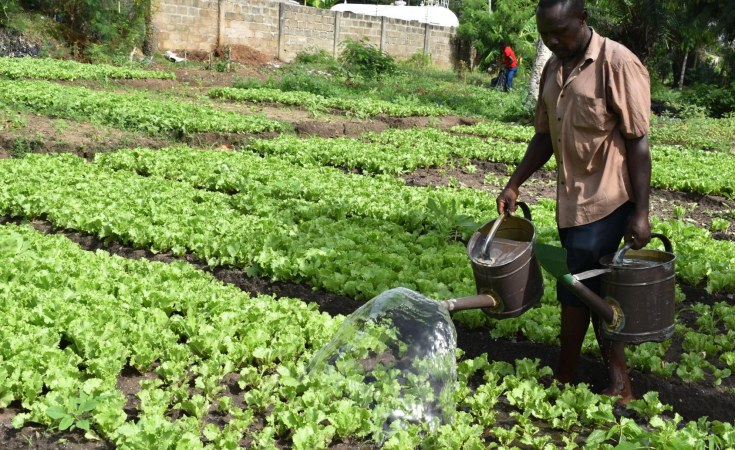Nairobi — Climate change has hit African farmers and food processors hard in recent years, making agriculture and the raw farm products that food companies depend on more unpredictable. However, an organization that promotes food security in Africa says farmers and processors are creating a more resilient food system by adapting to the new climate and creating a better infrastructure to minimize losses after the harvest.
Over the years, international organizations partnering with experts, food processing companies and governments, have worked to educate farmers on how to produce crops amid ever-changing technology and unpredictable weather patterns.
A nonprofit organization, Partners in Food Solutions, says that due to those efforts, African food processing companies are now starting to reap real rewards.
The organization's recent report says over 200 food companies they collaborated with in the past year saw growth in their income, the workforce and the food supply they receive from farmers.
Tropical Lush, a fresh fruit juice producing company in Kenya, is one of the companies that has received the support of PFS over the past 10 years.
Adrash Shah, head of Tropical Lush, said the company has increased revenue by 15% and often adds five to 10 temporary workers to its 30-person staff to meet demand. He credits his company's growth in part to local farmers, who he says have increased their quality and quantity.
"Even though global warming and rains and all that kind of stuff is affecting the produce ... we are generally able to get much better quality and more reliable supplies in our fruits from the farmers," Shah said. "With better farming techniques and a lot of better knowledge now, the farmers are able to access smartphones. They are able to predict weather patterns, able to see the soil [fertility], all those little things are probably now adding up and helping to benefit the farmer directly."
PFS, which is headquartered in the U.S., provides expertise from food industry giants like General Mills, Hershey and Cargill to help African processors with business strategy, growth, sourcing food, food safety and quality, storage, branding and marketing.
The organization says the companies it supports have increased their revenue by an average of 20 percent and increased food supply from farmers by 50%.
Johnson Kiragu, regional program director for East Africa, said he has seen the transfer of global food companies' expertise to Africa succeed.
"The eight global food companies that support us as PFS and directly support the food companies in Africa have shared 800 years of combined expertise," Kiragu said. "And we are sharing with a company that says it is three years [old]. So you can imagine how long they would have taken to get to a point where they can learn organically about this technology, about the way of doing business."
Shah said his company sought advice on how to grow the company and manufacture quality products.
"Whenever we have an issue with shelf life, temperature, cold chains [or] we want to make a new product, new product development," he said, "there is somebody out there who they can put us in touch with within a month and we start chatting with them and they help us."
Along with farming issues, African food companies often have to deal with inadequate harvesting methods, poor infrastructure and a lack of proper packaging and storage facilities.
The Food and Agriculture Organization of the United Nations says Sub-Saharan Africa experiences food losses as high as 50% for high-value commodities in between production and retail.
Kiragu of PFS said the organization is working with food producers to improve food handling practices, upgrade shipping and enhance storage facilities for agricultural produce.
"PFS is to make sure that there are ready and stable markets and we do this by supporting the businesses where they supply who is their market," he said. "And then once they are assured of that you can see the resiliency and the stability of the entire food value chain coming into place."
Companies face issues outside the food chain as well, such as corruption, slow issuance of operational permits and police roadblocks that slow down food delivery to consumers.


